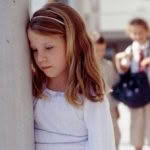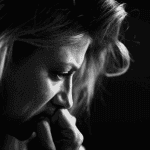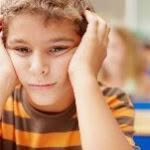Do you know of people that avoid social or group situations if at all possible? They maybe a family member, friend, work colleague or child. Or perhaps this is you?
Do they complain of being unwell, when you’re pretty sure they’re OK? Or maybe get upset when a school trip or camp is coming up? Do they avoid social situations where they might have to talk to new people? Are they awkward and blush easily in social situations? Are they often sick or tired and maybe seem to be in a negative mood all the time? Not wanting to go out or take part in activities with others? Maybe they sit in their room playing video games or on devises for hours at a time?
The above, or similar, scenarios could indicate social anxiety. This is also known as social phobia – an intense fear of being judged, negatively evaluated or rejected in social situations. This fear is out of proportion to the situation that the person is facing. E.g. a child can feel physically ill at the thought of having to speak in front of class.
At the other end of the scale is a person that doesn’t want to go to work or school because they’re being bullied. Sometimes even parents are not aware of this happening. The child or teen just withdraws into his or herself.
Anxiety is a huge problem today. And it has been intensified by the Christchurch shootings, both in children and adults. Many children have been exposed to TV footage, social media and other reports and even adults or other kids talking about it. Suddenly, their world no longer feels so safe. They begin to understand that their parents or caregivers could be killed or that they themselves could suffer horrible injuries or die.
No wonder they’re feeling anxious, as they’ve try to understand more about the vulnerability of life. Even adults had difficulty coping with what happened on 15th March, but children and teens just don’t have the adult coping mechanism.
Depending on their age, it’s no wonder that this has led to more and more children feeling “sick”, acting out, crying or being more clingy, not wanting to go to school, wanting a parent to stay with them while they go to sleep, having nightmares, etc.
Causes:
The causes of social anxiety can be classed into four general groups: genetics, brain chemistry, life situations and learned behaviour. It is often a combination of these which cause social anxiety.
Nowadays social media and the threat of cyber-bullying can play a huge part in causing social anxiety. Social media’s purpose was to make us more social, but it can actually do the opposite and make kids feel more anxious. It can help circulate anti-social behaviour.
Fears of rejection and thoughts of being compared to peers or others online come into play, kids can be left with feelings of intense anxiety, especially when their brains and personalities are still developing. The demand to fit in and look and act likes their peers and social media “celebrities”, is huge with teens. Anyone that’s different can, and often is, judged as weird and unacceptable.
Symptoms:
Social anxiety can show up as many different symptoms and can show up as many different health issues, which means that it can often be diagnosed as something else. This goes for adults as well as kids. It’s important to educate yourself as a parent or caregiver about social anxiety symptoms in kids.
Some have already been mentioned. The child may feel sick or tired before or during school. They may complain of other bodily issues such as their heart racing or feeling short of breath. They may feel like they can’t sit still or go into a closed-off mode. They could feel shaky and light-headed, sweaty and clammy. They may have a loss of appetite or some sleep problems
Behaviorally, young children may become clingy and cry a lot for their parents. Children and teens may act scared, upset or angry and refuse to talk or do things, or just go out with friends. Social anxiety can also show up as misbehavior at home or school. But this is often to avoid an uncomfortable situation or situation they are nervous about. E.g. refusing to say their lines in a play or a young child running away from their class or friends.
How can you help your child overcome anxiety?
Here are some suggestions…
- Education…
Cuddle or hug them, reassure them that they are safe, you are safe and that other people are keeping them self. E.g. police. Obviously tailor what and how you say it to the age of each child.
Depending on their age, you can have an open conversation about why anxiety exists in the first place – a healthy amount of anxiety serves to help keep us from danger. So anxiety can have a positive effect as well.
- Take a step back when needed.
‘Helicopter parenting’ or hovering over a child can often make them even more nervous. We think we are “protecting them’ but we’re wrapping them in cotton wool. Know when to take a step backwards, and when to help them out.
Ensure children have plenty of free time to play (not on devices or with “structured’ games and/or sport) so they can use their own imaginations. A limited involvement in the enjoyment of life and making things is not in the child’s best interests for them to be all they can be. They need free time to just be children.
- Try to limit their time spent online and on social media in favour for real life connections. Help to prepare them for any social event, group project, performance or speech at school.
Hypnotherapy can help children, teens and adults, overcome social anxiety by helping them “reset” their brain, so that they feel better about themselves, more positive and motivated to be involved and socialize with others. It also teaches that part of their brain, where all their automatic behaviour comes from, new ways to think about anxious situations before they occur, together with coping strategies and how to relax in group and social situations.
Roger Saxelby specialises in working with all types of anxiety, in both adults and children. His many years of experience means he can relate to just about everybody. With children he often works with them on something they want to improve to start with, that may not even be anxiety. Building trust and safety is paramount in therapy.




